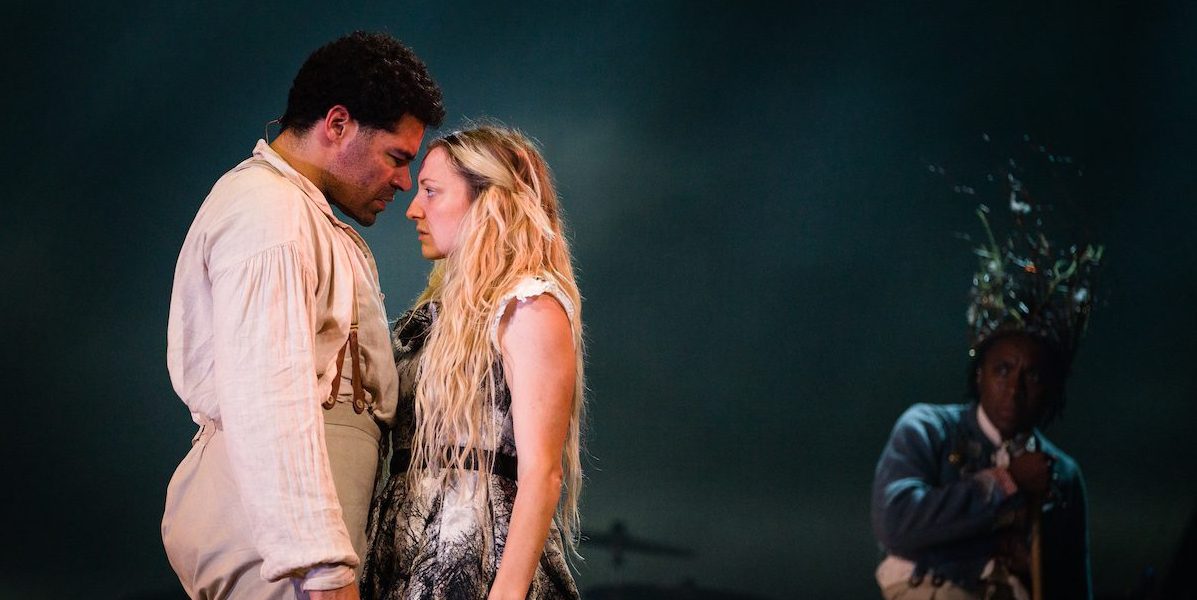Why is Wuthering Heights held up as a tragic romance? This was the question I walked away from the theatre with last night as I watched Heathcliffe (Ash Hunter) – so often talked about as a romantic hero – destroy everything and everyone around him as he is driven mad by his own toxicity and destructive masculinity.
In his insanity, he is far from alone. Everyone in this production of Wuthering Heights is either mad, dying, dead or – in the shape of Catherine Earnshaw (Lucy McCormick) – all three. How they then deal with this madness is then presented as fundamentally a matter of character and constitution. The weak fail and the strong survive.
This is a wild and kinetic take on a classic that has long endured, though I would argue has been long misunderstood. Brontë was not writing a romance, but an anti-romance. And while her ending offers a semblance of hope, the wild moors so prominent in the book (and here given anthropomorphic life in the shape of Nandi Bhebhe) set the tone throughout – and it’s a stormy one.
This was also a highly comic take. Isabella and her son Linton (both played by Katy Owen) are almost completely portrayed as ridiculous in their weakness. Which dulls our sympathy for them as they are treated horrendously cruelly by Heathcliffe. Owen does an incredible job with this take – and her physicality is the best on the stage, but this choice left me a little uneasy.
More interesting for me was the understated performance of Tama Pheathen as the father and son Earnshaws. He especially comes into his own playing the complex Hareton – perhaps the character with a redemption, is that Heathcliffe, is denied by his own rages, jealousy, and desire for revenge.
The staging was glorious. From the on-stage band (who took part occasionally in the action) to the set – literally a revolving door – there was movement, colour, light and people to look at, all the time. This production is long – especially the first half. But it kept the eye, heart, and mind busy throughout. The personification of the Moors led by Bhebhe with a chorus of singers and dancers gave life and even more movement to the key characters of the book and replacing the traditional narrator with this role made both dramatic and artistic sense, generating the live image of the moors – wild, untamed and looming.
Some of the melodrama in the show is – for me – a little melodramatic. McCormack’s Cathy is a little too screechy for comfort. However, at her finest – such as the unexpected breakout rock number – it worked well.
Wuthering Heights is an opening to a number of conversations we should be having about our ideas of romance and romantic heroes. Here those are exposed but not quite questioned. It is also a story about the essential difference between weakness and strength – physically and mentally. Overall it is a fantastic story, well told with plenty to charm the eye, the ear, and the heart.

